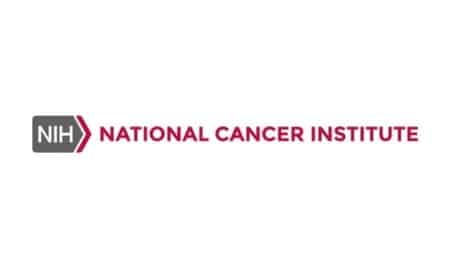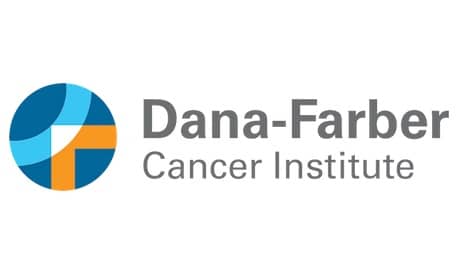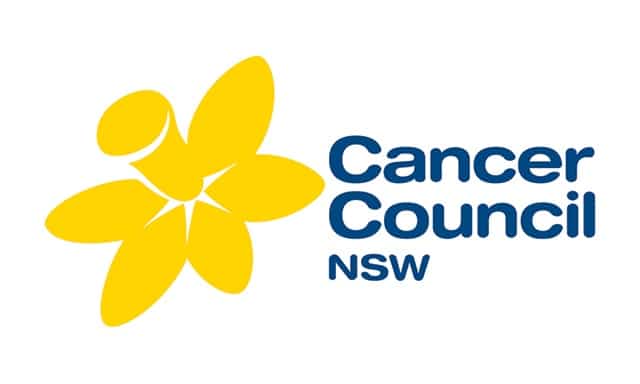A letter from Laura
Now that you’ve been through all the diagnostic testing and decision-making about treatment, you may be wondering if and how to prepare yourself for the therapy that lies ahead.
We believe that preparing for your treatment, whether a surgery or a series of individual treatment sessions spread out over time, can nourish your resilience, build your strength, replenish your reserves, and help you fare better throughout this phase.
A letter from Laura
Your conventional treatment team will be giving you some instructions to prepare. For instance, if you have anemia from cancer, they will suggest what to eat and supplements and medications to take to improve this condition. They may refer you to professionals like a physical therapist to teach you exercises that you’ll need to do before and after surgery. Or they may suggest some lifestyle changes like stopping smoking before surgery.
Unless you report a high level of distress, they will not likely be focusing on your state of mind. Yet we believe that preparing mentally, emotionally, and spiritually can be quite important in this preparation phase. We will provide information that will help you prepare your mind and spirit for your upcoming treatment.
Don’t expect your conventional doctors to make suggestions about using self-care and complementary therapies to get you in better shape to receive treatment. But that doesn’t mean they aren’t important. To the contrary, we believe they can be very useful in your preparations.
If you’re interested in using the time before you start treatment to get prepared, read further. We provide information and guidance about choosing and using the best of conventional and complementary therapies and self-care practices to bolster your resilience and replenish your reserves.
Thank you for choosing CancerChoices to be a guide by your side. You are not alone.
Take care,
Laura
Laura Pole, MSN, RN, OCNS
Laura Pole is senior clinical consultant for CancerChoices. Laura is an oncology clinical nurse specialist who has been providing integrative oncology clinical care, navigation, consultation, and education services for over 40 years. She is the co-creator and co-coordinator of the Integrative Oncology Navigation Training at Smith Center for Healing and the Arts in Washington, DC. Laura also manages the “Media Watch Cancer News That You Can Use” listserv for Smith Center/Commonweal. In her role as a palliative care educator and consultant, Laura has served as statewide Respecting Choices Faculty for the Virginia POST (Physician Orders for Scope of Treatment) Collaborative as well as provided statewide professional education on palliative and end-of-life care for the Virginia Association for Hospices and Palliative Care.
For CancerChoices, Laura curates content and research, networks with clinical and organizational partners, brings awareness and education of integrative oncology at professional and patient conferences and programs, and translates research into information relevant to the patient experience as well as clinical practice.
Laura sees her work with CancerChoices as a perfect alignment of all her passions, knowledge and skills in integrative oncology care. She is honored to serve you.
Laura Pole, MSN, RN, OCNS
Laura Pole is senior clinical consultant for CancerChoices. Laura is an oncology clinical nurse specialist who has been providing integrative oncology clinical care, navigation, consultation, and education services for over 40 years. She is the co-creator and co-coordinator of the Integrative Oncology Navigation Training at Smith Center for Healing and the Arts in Washington, DC. Laura also manages the “Media Watch Cancer News That You Can Use” listserv for Smith Center/Commonweal. In her role as a palliative care educator and consultant, Laura has served as statewide Respecting Choices Faculty for the Virginia POST (Physician Orders for Scope of Treatment) Collaborative as well as provided statewide professional education on palliative and end-of-life care for the Virginia Association for Hospices and Palliative Care.
For CancerChoices, Laura curates content and research, networks with clinical and organizational partners, brings awareness and education of integrative oncology at professional and patient conferences and programs, and translates research into information relevant to the patient experience as well as clinical practice.
Laura sees her work with CancerChoices as a perfect alignment of all her passions, knowledge and skills in integrative oncology care. She is honored to serve you.
You may be wondering if you can do anything now—something to prepare for cancer treatment that might make you healthier and increase your resilience. The answer is yes.
On this page:
First, take care of difficult emotions, symptoms, and physical distress
Learn about your treatment
Knowing about your treatment can help you prepare. What are the likely outcomes and side effects? How long does recovery usually take? What situations would make you need to seek medical advice between treatments?
Our recommendations for learning about your treatment:
- Attend your oncology clinic’s educational sessions about your treatment.
- Review information they give you before the educational sessions if possible.
- Ask questions about anything you don’t understand. Let your care team know if you are not able to understand the written information they give you and/or you have problems accessing online resources they list.
- Ask someone to join you, preferably the person who will be your caregiver. They can take notes, ask questions, and troubleshoot with you if you run into problems during treatment.
Follow your clinic’s instructions in preparing for cancer treatment. Let them know if you have any problem following through on your preparation.
Let your oncologist or oncology nurse know if you need assistance with issues related to finances, transportation, child care, or physical, mental, or emotional health.
Ask if your cancer center has integrative oncology or general integrative medicine services that you can access.
Helpful links for learning about your treatment
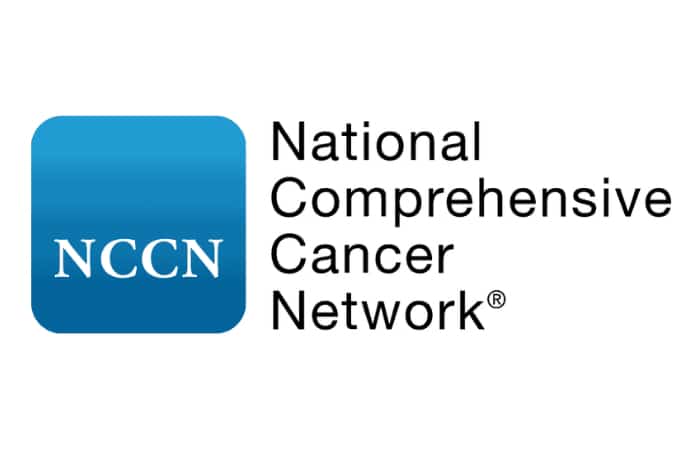
NCCN Guidelines for Patients ›
Treatment by Cancer Type ›
For health professionals

Understanding Your Diagnosis ›
Cancer A-Z ›
Find information on your type of cancer
Improving your resilience
Resilience is the ability to recover quickly from difficulties such as the rigors of cancer treatment. Resilience regarding treatment includes not only your body’s physical condition and ability to bounce back, but your ability to manage all the various ways that cancer and treatment can impact you. Will you need someone to take care of pets, children, a spouse, or anyone else who relies on you? Will you be able to work? Do you have transportation to and from treatment appointments? Will you be able to manage bills and paperwork? Will you be able to get meals and take care of yourself? Now is the time to plan for all these impacts—to increase your resilience.
Resilience is linked to higher quality of life and, in some cases, better outcomes for people with cancer. Your level of resilience is influenced by your general health, but also by your previous experience dealing with difficulties, your coping skills, your social support, and your resources. You may already have inner strengths and qualities as well as external supports that you’ll need to tap now to build your resilience. If not, we offer information on getting assistance.
Prehab
After a cancer diagnosis and before treatment begins, you can prepare your body, mind, and spirit to be in the best shape possible to meet the challenges of cancer treatment. This process is called cancer prehabilitation, or simply prehab.
Conventional approaches to preparing for cancer treatment
Your conventional cancer treatment team will tell you how to prepare for treatment and will teach you about conventional measures to prevent or minimize side effects. They will likely focus on the physical aspects of treatment and their effects on your body.
They may not tell you about lifestyle practices, and they most likely won’t suggest you include complementaryin cancer care, complementary care involves the use of therapies intended to enhance or add to standard conventional treatments; examples include supplements, mind-body therapies such as yoga or psychosocial therapy, and acupuncture therapies. Some teams may teach you about measures to bolster your mental and emotional health, but others may not.
Most oncology clinics have access to an oncology social worker and a registered oncology dietician. If you will be getting treatments known to affect your ability to get good nutrition, such as radiation to the head and neck area, you may automatically be referred to an oncology dietician. If you aren’t given a referral but want help with nutrition, request a referral from your oncology team.
If you want help for mental, emotional, financial or social issues such as transportation or child care, request a referral to someone who can assist you. You can also ask if your clinic has an oncology navigator who can help you with the logistics of treatment and overcoming barriers to getting treatment.
Many cancer treatment centers offer prehab programs and services, even if they don’t formally label them as “prehab.” Ask your cancer care team if they provide or refer patients to cancer prehab services and what those services are. If they don’t, consider researching the types of prehabilitation services that will be helpful for your situation before your treatment begins. Talk with your doctor about accessing services.
Also ask for a referral to a local, medically directed wellness or fitness program specifically designed for people with cancer, if any are available. Some cancer centers and area medical centers offer wellness or fitness programs for people with illness, including cancer. These programs may be able to help you build stamina, strength, and pulmonary and cardio capacity before treatment.
Cancer prehab services may be available in your area:
- Ask your oncology team.
- Search your phone book for cancer prehabilitation or rehabilitation services; ask your local medical providers for leads.
- Search the Internet for “cancer prehabilitation near me”
Helpful links about prehab
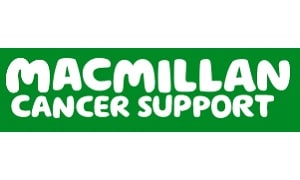
Perhaps at this point you feel you have enough information to get started. You may need to pause here. As with all topics on this site, take in as much as feels right to you at this moment. When you’re ready for another layer of exploration, you can return.
Integrative approaches: further preparation
Integrative oncologists including CancerChoices advisors Keith Block, MD, and Lise Alschuler, ND, FABNO, recommend getting your health in its best possible shape before treatment. Unless you’re in an urgent situation requiring that chemotherapy or radiation therapy start right away, you may be able to use the time before treatment to increase your resilience. This might involve improving your body weight—either underweight or overweight—bringing stress under control, controlling high blood sugar, or improving your immune function. An integrative approach will address these issues with both conventional and complementary therapies.
Personal story
Ruth Hennig, breast cancer survivor and CancerChoices special contributor, writes: My main concern in seeking out acupuncture prior to surgery was to help reduce anxiety. Just as important but less obvious in the days before surgery is acupuncture’s ability to strengthen the immune system, which is helpful for any hospital stay. Its energy boosting capacity then propelled me into three weeks of the most intense healing after surgery.
Read Ruth’s full story from our collection of cancer stories.
Surgery is one of the cornerstone treatments of many cancers. It may remove all visible evidence of a tumor or at least reduce its size. After surgery, your body’s immune system—sometimes along with chemo and/or radiation therapy—can come along and eliminate the remaining undetected cells before they can re-establish themselves.
Prehab is also useful before other types of cancer treatment. For instance, before radiation to the head and neck area, you may be referred to a speech therapist to begin exercises and swallowing maneuvers to reduce impairments, maintain function, and enable a speedier recovery.
Preparing your body terrain
Though knowing as much about the cancer as possible is important, knowing about the person who has the cancer—you—is equally important: What condition are you in? How might that affect the behavior of the cancer and/or your body/mind/spirit’s response to the treatment?
That means knowing about your body terrainthe internal conditions of your body, including nutritional status, fitness, blood sugar balance, hormone balance, inflammation and more. It means checking for imbalances in your terrain that might help the cancer create an environment that supports its growth and spread.
Talk with your doctor if you have or suspect you have any of these imbalances and what you can do to bring them into balance as you prepare for treatment. An integrative medical or naturpathic oncologist or functional medicine physician will be most attuned to detecting terrain imbalances and optimizing your terrain.
Traditional medical treatment systems, such as traditional Chinese medicine (TCM) or Ayurveda, may also provide additional insights. Traditional medicine draws from the accumulated knowledge, skills, and practices of indigenous cultures around the world.
TCM uses many therapies that are effective and safe in supporting or complementing conventional cancer treatments. Some TCM treatments, such as acupuncture and Chinese herbs, may be helpful even before starting conventional treatment. For example, Chinese herbs are used to boost bone marrow function and improve anemia and low levels of white blood cells and platelets.
Learn more about traditional medicine and how to find practitioners.
CancerChoices advisor Brian Bouch, MD, explains how to tune up the body before starting and during conventional cancer treatments. He discusses how Chinese herbs are used to boost bone marrow function and improve anemia, low white blood cell and platelet counts.
Play videoPreparing your mind and spirit
When people are about to go into a demanding situation, such as going through cancer treatment or running a marathon, psyching up the mind and bolstering the spirit can be the necessary boost to get over the finish line or ring the “I just finished chemo” bell. Consider using mind-bodyapproaches that enhance your mind’s capacity to positively affect your body’s function and symptoms. Some interventions focus on calming your mind, improving focus, enhancing decision-making capacity, managing stress, or resolving conflict. Other interventions have a goal of relaxing both your mind and your body. and spiritual therapies and self-care practices that get your mind and spirit in “the zone”, a place of clear intention and focused attention.
Take action: therapies to build your resilience
As you prepare for treatment, self care and complementary therapies may be helpful in making you healthier and increasing your resilience.
However, if adding anything more to what you are already doing in this pretreatment period feels stressful and burdensome, then let this go for now. If you decide to wait until after treatment to introduce complementary therapies and lifestyle changes, then pat yourself on the back for setting your limits and minimizing additional stressors. Know that your treatment team will be guiding you on conventional measures to prepare for treatment.
Self care
The 7 Lifestyle Practices and healthy lifestyle choices may be helpful in preparing for treatment as well as during treatment.
The 7 Lifestyle Practices are the foundation of self care. Since these require more effort than taking a pill, we suggest you start with the top one or two that appeal to you.
Example: Many people do better during treatment when they do aerobic exercise paced to their ability. Starting or continuing your exercise program before you begin treatment is one way to establish this practice and begin to increase your reserves.
Healing practices and healthy lifestyle choices can also help make your body less hospitable to cancer and perhaps make the cancer more vulnerable to the treatments.
Healing practices and health-promoting lifestyle choices can be quite useful in managing the side effects of treatment and improving your quality of life during treatment.
Example: Stopping smoking before surgery can greatly decrease the risk of serious complications during and after surgery as well as improve chances of overall survival.
Complementary care
Either alone or in addition to self-care healing practices, complementary therapies such as supplements and mind-body therapies might help you now. Many of these therapies help ease feelings of overwhelm and anxiety or help manage symptoms such as pain. Many of these therapies are available without prescription. However, note any cautions, and check with your doctor if indicated. Some complementary therapies should not be used in combination with some cancer treatments.
Get more help
Volunteer guides can lead you through this website, and advocates of navigators can help with the bigger unfamiliar territory of cancer.
Helpful links
Helpful links for health professionals are in Are you a health professional? ›
Books
Alschuler LN, Gazella KA. The Definitive Guide to Cancer, 3rd Edition: An Integrative Approach to Prevention, Treatment, and Healing. Berkeley, California: Celestial Arts. 2010. Part II, Treatment Approaches; Part III, Key Body Functions
Block KI. Life over Cancer: The Block Center Program for Integrative Cancer Care. New York: Bantam Dell. 2009. Sphere 3: Enhancing Your Treatment
MacDonald B. The Breast Cancer Companion—A Complementary Care Manual: Third Edition. Self-published. 2016.
McDonell L, Swaringen S. Dancing with Cancer and How I Learned to Lead: A Guide to Becoming an Advocate for Personalized Cancer Care. 2021. Part 2: Tips and Resources and Part 3: Eight Healing Practices
O’Toole C. Healing Outside the Margins: The Survivor’s Guide to Integrative Cancer Care. Washington, DC: Lifeline Press, 2002.
Are you a health professional?
Helpful links on prehabilitation
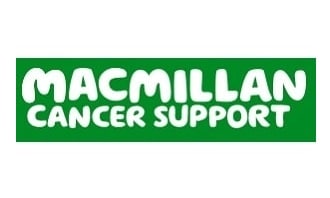
10 top tips for primary care: Prehabilitation ›
Prehabilitation Podcasts › Podcasts with people with cancer and professionals
Silver JK, Baima J. Cancer prehabilitation: an opportunity to decrease treatment-related morbidity, increase cancer treatment options, and improve physical and psychological health outcomes. American Journal of Physical Medicine & Rehabilitation. 2013 Aug;92(8):715-27.
Shun SC. Cancer prehabilitation for patients starting from active treatment to surveillance. Asia- Pacific Journal of Oncology Nursing. 2016 Jan-Mar;3(1):37-40.
Giles C, Cummins S. Prehabilitation before cancer treatment. BMJ. 2019 Aug 14;366:l5120.
Books
Abrams DI, Weil A, editors. Integrative Oncology, Second Edition. New York: Oxford University Press. 2014.
Chang R. Beyond the Magic Bullet: The Anti-Cancer Cocktail. New York: Square One Publishers. 2012. Part 1: Biology and Cancer Treatment
MacDonald B. The Breast Cancer Companion—A Complementary Care Manual: Third Edition. Self-published. 2016.
McKinney N. Naturopathic Oncology, Fourth Edition. Victoria, BC, Canada: Liaison Press. 2020. Chapter on Integrative Support for Medical Oncology
Parmar G, Kaczor T. Textbook of Naturopathic Oncology: A Desktop Guide of Integrative Cancer Care. 1st edition. Medicatrix Holdings Ltd. 2020.
Health professional comment
We invite health professionals to contribute expertise or send us questions.
"*" indicates required fields

